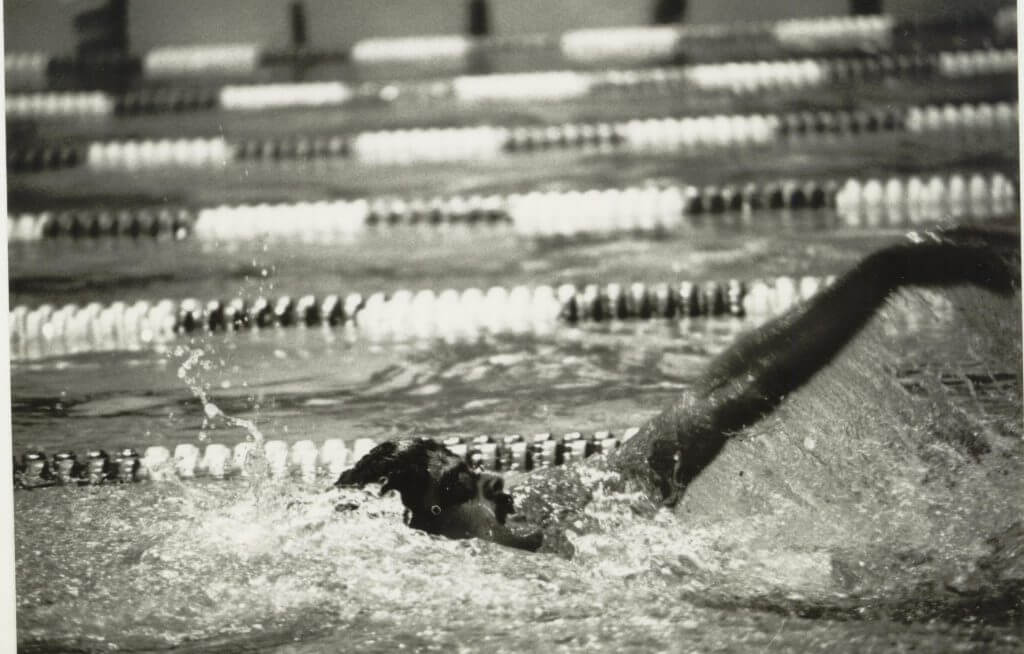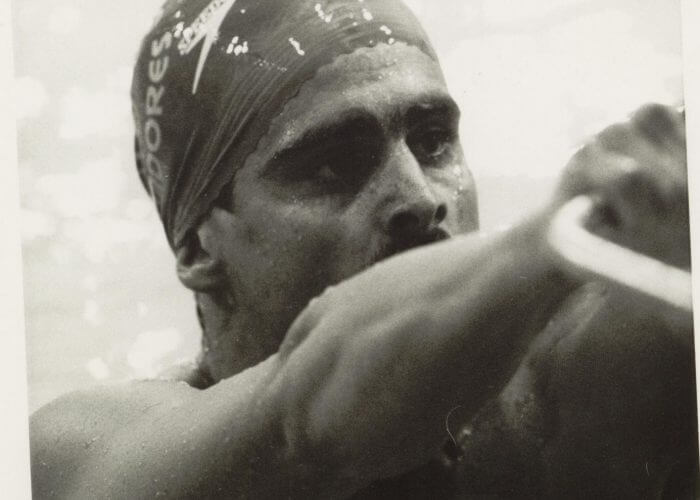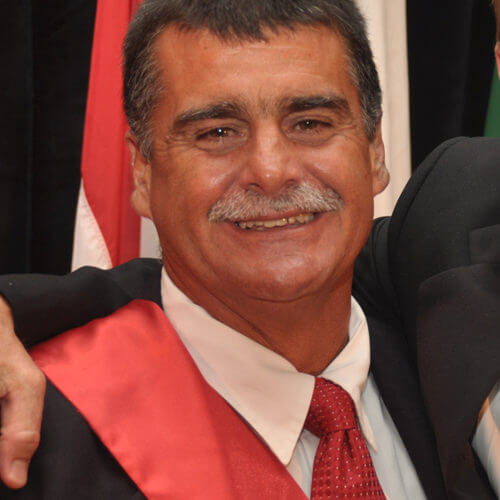The Missed Turn: Appreciating the Career of the Innovative Jesse Vassallo

The Missed Turn: Appreciating the Career of Jesse Vassallo
“The Missed Turn” is a regular feature in Swimming World that examines the career of an athlete who may not have received the attention he/she deserves. In this latest edition, we look at the career of Jesse Vassallo.
Olympic success—and even opportunity—doesn’t simply rely on talent. A confluence of good timing and fortune is also required. Ask Michael Phelps. Sure, his unmatched skill set was the driving force to his record eight gold medals at the 2008 Olympic Games in Beijing. But without Jason Lezak’s epic anchor leg in the 400 meter freestyle relay, Phelps would have left his third Games with seven gold medals and a silver.
Yes, Phelps would have been celebrated for such a showing. But when Lezak powered the United States to an improbable comeback against France, Phelps’ pursuit of an iconic eight Olympic golds remained intact—and was eventually achieved. And, fair or not, that additional title elevated Phelps to unique status.
In the case of Jesse Vassallo, external factors denied the multi-event star from attaining greater success in a career that still can be described as special. So, here we are to ensure that Vassallo is appropriately honored and remembered as an all-time great.
A RISING STAR
Born in Puerto Rico, Vassallo emerged as a phenom at a young age. He was an age-group record holder and ranked among the elite performers in the world in multiple events as a 15-year-old. Due to his precociousness, Vassallo’s family initially relocated to Florida and then California, the latter move designed to allow Vassallo to train with the Mission Viejo Nadadores, and under the direction of Coach Mark Schubert.

Photo Courtesy: Chris Georges
As Vassallo continued to mold his talent under Schubert, a future Hall of Famer and multi-time Olympic coach, the teen targeted the 1976 Olympic Games in Montreal. But in what was Vassallo’s first speedbump in the pursuit of Olympic glory, he never got that chance. With Puerto Rico requiring a year of residency to represent the nation on the Olympic stage, Vassallo—now living in the United States—was deemed ineligible.
Although the Olympics would have to wait, Vassallo wasn’t about to hang in the shadows. Given the chance to compete at the 1976 AAU Championships in Philadelphia, Vassallo captured gold in the 400 meter individual medley and was the runner-up in the 1500 freestyle. Vassallo wasn’t the only athlete who used the competition as a proving ground. South African Jonty Skinner, denied an Olympic berth due to his nation’s ban from the Games for its apartheid policies, set a world record in the 100 freestyle.
For Vassallo, his trip to Philly can be considered a major launching point in his career.
THE ROAD TO MOSCOW
Riding the momentum generated in Philadelphia, Vassallo began a march toward stardom in 1977 that was supposed to culminate in a bid to the 1980 Olympics in Moscow. A world-class performer in the 1500 freestyle, both backstroke events and both medley events, Vassallo focused on the 1978 World Championships as the site of his international breakthrough.
After setting a world record in the 400 IM at the World Champs Trials, Vassallo was even better in West Berlin, as he further lowered his global standard. Clocking a time of 4:20.05, Vassallo captured gold by more than two seconds over the Soviet Union’s Sergey Fesenko. More, he earned a gold medal in the 200 backstroke and added a silver medal in the 200 medley.
 Piggybacking on his World Champs showing, Vassallo only enhanced his status at the 1979 Pan American Games, which were held in his homeland of Puerto Rico. At Pan Ams, Vassallo stormed to gold medals in both medley events, and picked up a silver medal in the 200 backstroke. Vassallo’s triumph in the shorter medley arrived in world-record time, and there was no doubt he was on track for significant Olympic success. It was also meaningful to excel in front of the Puerto Rican crowd.
Piggybacking on his World Champs showing, Vassallo only enhanced his status at the 1979 Pan American Games, which were held in his homeland of Puerto Rico. At Pan Ams, Vassallo stormed to gold medals in both medley events, and picked up a silver medal in the 200 backstroke. Vassallo’s triumph in the shorter medley arrived in world-record time, and there was no doubt he was on track for significant Olympic success. It was also meaningful to excel in front of the Puerto Rican crowd.
“I was a little nervous about swimming at the Pan American Games in Puerto Rico, a little unsure how the people would like me having gone to the United States to train,” Vassallo said. “But they were great. Once I got there, I knew I wanted to swim super-fast for the people and for my family.”
With rumors swirling following the 1979 Soviet invasion of Afghanistan, United States President Jimmy Carter confirmed in early 1980 that the United States would boycott the Moscow Games. The decision robbed hundreds of athletes—including Vassallo—of their Olympic dream. Shortly after the Olympics, the United States held its Olympic Trials in which the athletes chased the podium times from Moscow. Vassallo, not surprisingly, was a star of the meet—and he made President Carter aware of what was stolen when the White House invited the U.S. Olympians to Washington for a special event.
“(Carter) reached out to shake my hand and he asked, ‘How would you have done in Moscow,’” Vassallo once recalled of his White House visit. “And I said, ‘I would have won two golds and a silver.’ And he just gave me this (pained) look. He didn’t ask anybody else that question.”
AN OLYMPIAN AT LAST
Following the 1980 campaign, many American athletes faced a difficult decision. Should they remain in the sport and chase a berth to the 1984 Olympics in Los Angeles? Or, was it time to walk away? Vassallo hung on and became an NCAA champion at the University of Miami before a knee injury led to retirement.
Eventually, Vassallo opted for a comeback and—deservingly—earned the chance to compete on the biggest stage in sports. Vassallo qualified for the Los Angeles Games in the 200 backstroke and 400 individual medley. While Vassallo narrowly missed the final of the 200 backstroke, placing ninth in prelims, he advanced to the championship heat of the 400 IM. As Canadian Alex Baumann rocketed to a world record, Vassallo finished fourth, a little less than a second behind Australian bronze medalist Rob Woodhouse.
For some, the 1984 Games served as a moment of redemption for what was taken from them in 1980. The likes of Tracy Caulkins, Mary T. Meagher and Rowdy Gaines can be counted in that group. Others, such as Craig Beardsley, never qualified after being on top of the world four years earlier. Vassallo was not at his peak in 1984, but he did get the chance to experience the Olympic realm.
REDEFINING THE SPORT
Beyond his multi-event excellence, Vassallo was an innovator—his influence still a factor in the sport today. Although American backstroke ace David Berkoff is widely credited with emphasizing underwaters as a tactical advantage in the late 1980s, it was Vassallo who initially pioneered the notion of staying submerged and maximizing the power of his kick.
At 5-9, Vassallo often found himself dwarfed by the competition. Consequently, it was easy to be thrown around his lane, lost in the wake of giants. To escape the waves, Vassallo simply stayed underwater for a longer duration, benefiting from the strength in his legs and his kicking technique. Berkoff ultimately enhanced the maneuver, sometimes staying underwater for as long as 35 meters, until rule changes limited the underwater approach to 10 meters and the current rule of 15 meters.
“I decided to do the underwaters coming off the starts, and it worked pretty well,” Vassallo said in the documentary, How the Dolphin Kick Changed Swimming Forever. “After that, I continued to develop it and use it in my turns and stuff like that. I might be the one that originated and started this, but (others) really took it through to the Olympic level.”
A LEGEND OF THE SPORT
Dedicated fans with a deep respect for the history of the sport know all about Jesse Vassallo and his wide-ranging talent. As a 1997 inductee into the International Swimming Hall of Fame, his accomplishments are celebrated. It is critical, however, to continue our appreciation for Jesse Vassallo, to recognize just how much he achieved and for the younger generations to acknowledge his impact as a trailblazer.




Awesome swimmer which never could demonstrate his talent at the Olympic games due to politics. In PR internal politics and in USA international politics.